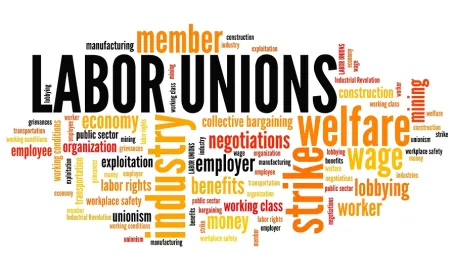From time to time, employers trigger labor disputes when they make unilateral changes in working conditions. Unions objecting to such changes often complain to the NLRB, claiming a change to be mandatory bargaining subjects and that the employer’s change without prior bargaining violates the NLRA’s Sections 8(a)(5) and (d).
Late last year, in MV Transportation, 368 NLRB No. 66 (2019), the NLRB addressed this issue and held that an employer’s unilateral change did not violate the Act “[w]here [a] contract[‘s] language [arguably] covers the act in question,” thus contractually authorizing the employer to make the complained-of unilateral change. This clarifying rule of Board law came to be known as the “contract coverage” doctrine.[1] As a result of MV, unions could no longer avail themselves of the Board to remedy such “contract covered” unilateral changes. Instead, they were forced to pursue their claims through their contractual grievance and arbitration procedures or to simply drop the issue.
Left unanswered by MV was the question of whether the contract coverage doctrine applied to unilateral changes made after a collective bargaining agreement (CBA) expired. On April 21, the Board addressed this issue in Nexstar Broadcasting, Inc., 369 NLRB No. 61, answering the question in the negative and holding that, absent explicit contract language to the contrary, CBA provisions do not survive the expiry of a contract and that once a CBA expires an employer may not make unilateral changes in working conditions unless and until it satisfies the requirements of the Katz rule.
In NLRB v. Katz, 369 U.S. 736 (1962), the Supreme Court held that an employer whose CBA has expired violates Section 8)a)(5) if, without first bargaining to impasse, it unilaterally changes a term or condition of employment. This obligation arises out of the NLRA, and not the parties’ expired CBA. Thus, once a CBA expires, an employer has a statutorily imposed duty to maintain the status quo until its bargaining obligation is either satisfied by way of a new CBA or it is suspended while the bargaining parties are at a bargaining impasse. Because this status quo obligation arises not out of the parties’ expired CBA but by operation of law, the NLRB concluded that the contract coverage standard could not provide a defense to unilateral changes made following a CBA’s expiration. Accordingly, employers whose expired CBA contains a broad management rights clause or some other type of enabling language may not rely on that language to justify their post-expiration changes in working conditions.
On the other hand, the Board has also found that an employer makes no “change” within the meaning of Katz when it continues to do what it has done in the past — even though a CBA has expired and regardless of whether a CBA was in effect at the time of the employer’s past acts. For example, in Raytheon Network Centric Systems, 365 NLRB No. 161 (2017), the Board recently sustained an employer’s unilateral change in medical plans after contract expiration, holding that an employer may be free to make post expiration unilateral modifications in working conditions without prior bargaining if those modifications are consistent with similar prior unilateral actions — especially when taken at and or about the same time in prior years. In the Board’s view, unilateral actions constitute a “change” within the meaning of Katz only if they materially differ from what has occurred in the past. Thus, unilateral changes consistent with established and proven past practice do not constitute a genuine alteration of established working conditions and, thus, do not constitute true changes in the status quo within the meaning of Katz. An employer may, therefore, make such unilateral modifications, notwithstanding the expiration of its CBA and even though the employer and the Union may actively be bargaining over a new CBA and are not at a bargaining impasse.
TAKEAWAYS FROM MV TRANSPORTATION, NEXSTAR AND RAYTHEON:
-
Where a CBA contains language that arguably authorizes an employer to make changes in working conditions without prior bargaining with its union, the employer’s unilateral action will probably not constitute a violation of the NLRA.
-
Where a CBA containing language that enables an employer to take unilateral action during the contract’s term has expired, that enabling language will not serve as a defense to NLRA claims based on an employer’s post-expiration unilateral action. Such unilateral changes are generally barred by Katz until a new CBA is reached or the parties are at a lawful bargaining impasse.
-
Even in the absence of enabling language and regardless whether a CBA has expired or not, an employer’s conduct that is consistent with proven past practice is not a change in working conditions within the meaning of Katz and, thus, not a violation of the Act.
-
Unionized employers would be wise to exercise their contractual rights under their CBAs to the fullest extent possible and to take unilateral action during a CBA’s term — even though those contractual rights will not block 8(a)(5) claims based on the employer post expiration unilateral actions — because by exercising those rights and taking those unilateral actions while they are enabled and protected by a CBA, the employer will be establishing a past practice that will allow the employer to take similar unilateral action once the CBA expires.
FOOTNOTES
[1] Our article reporting and analyzing MV can be found here.





 />i
/>i
